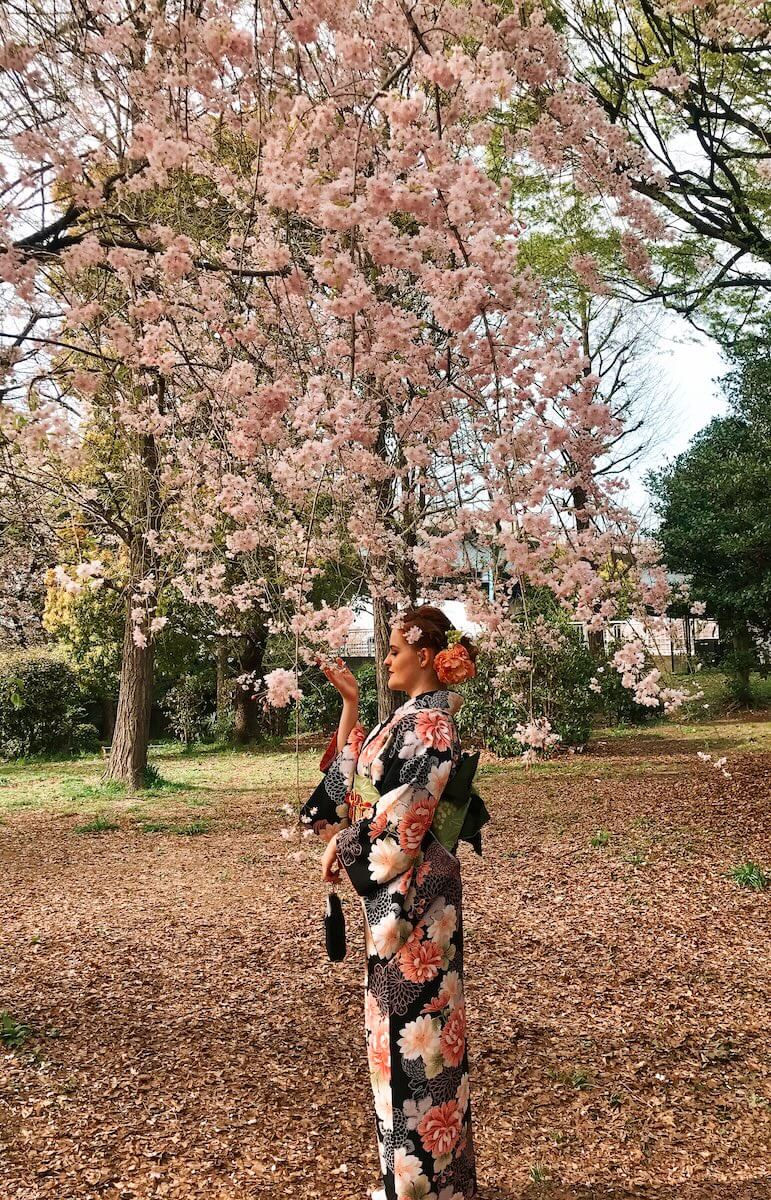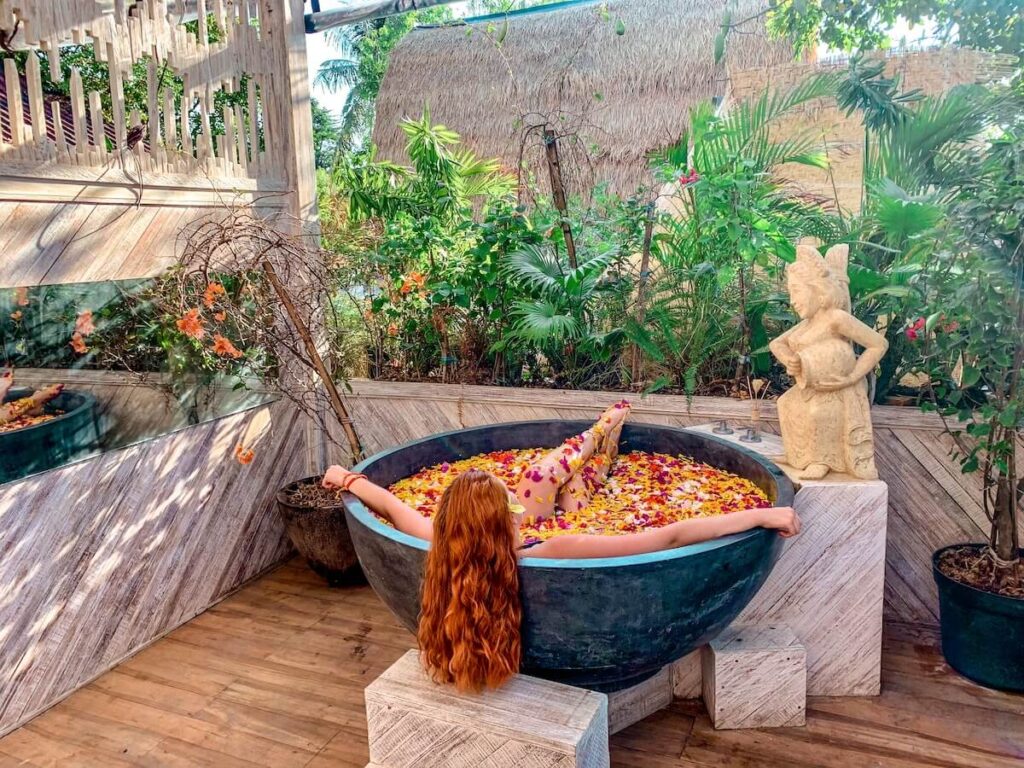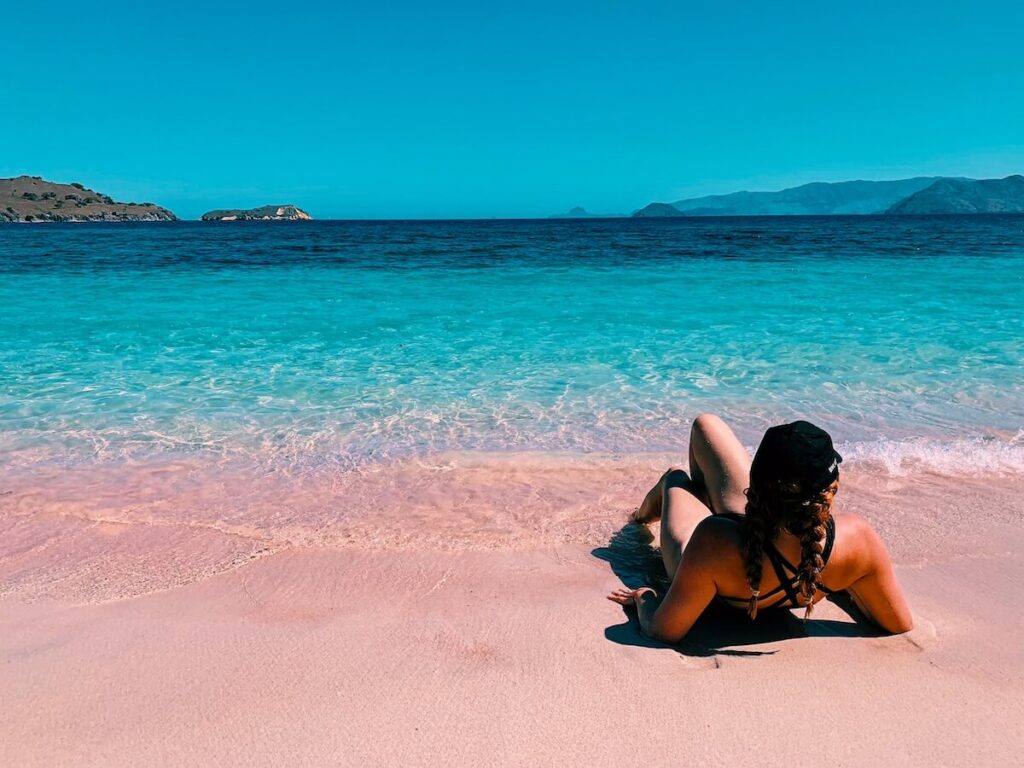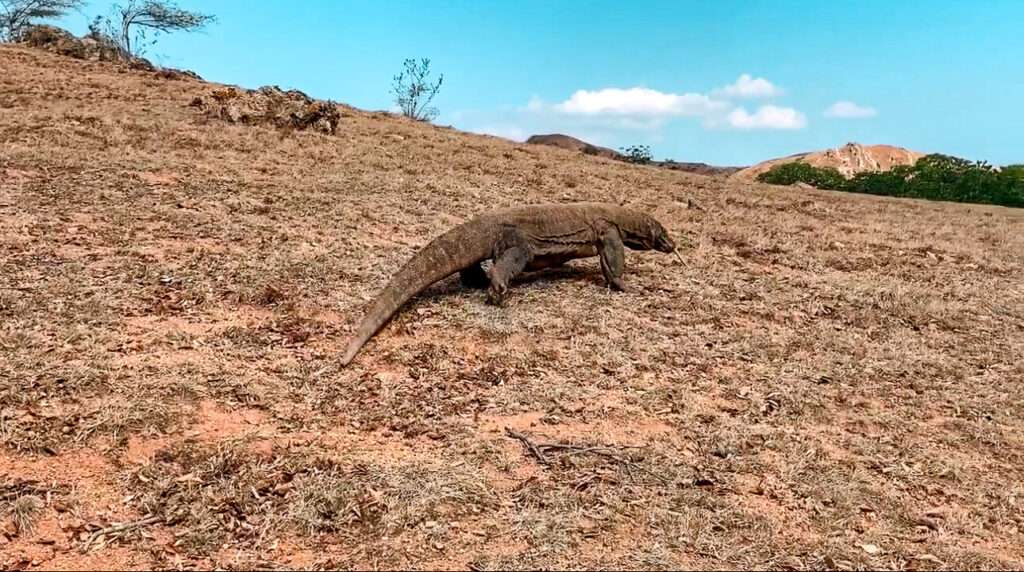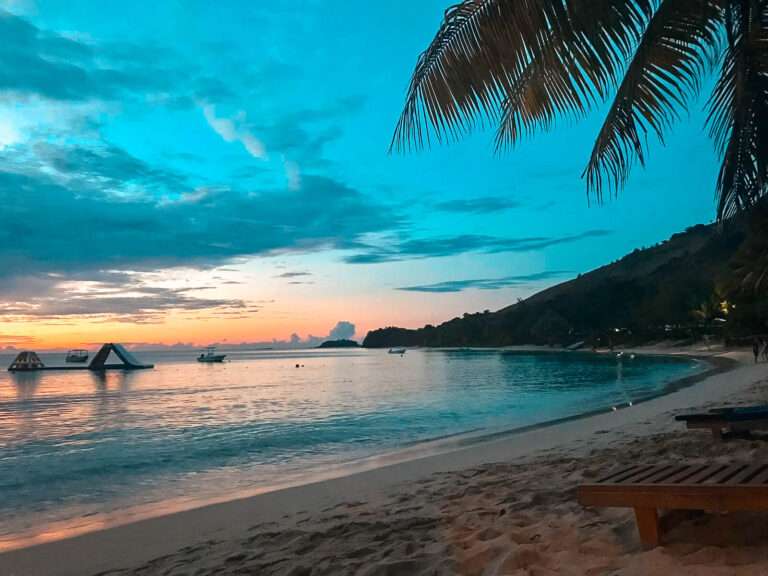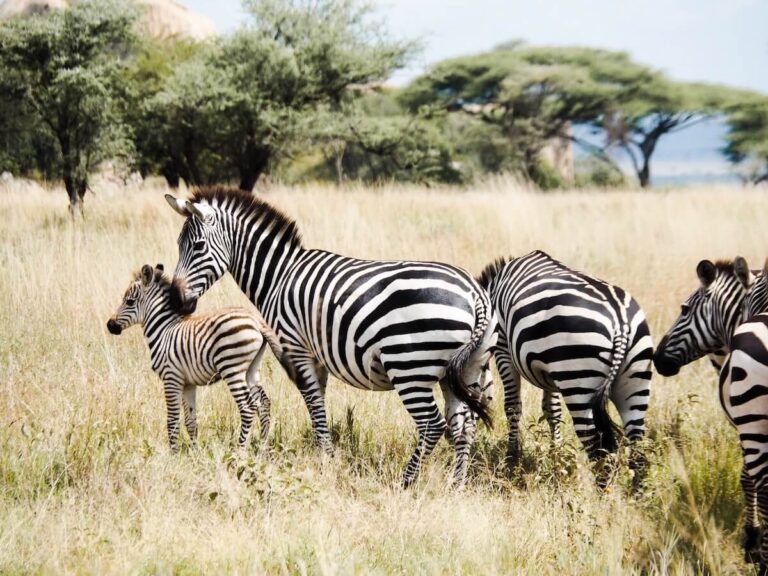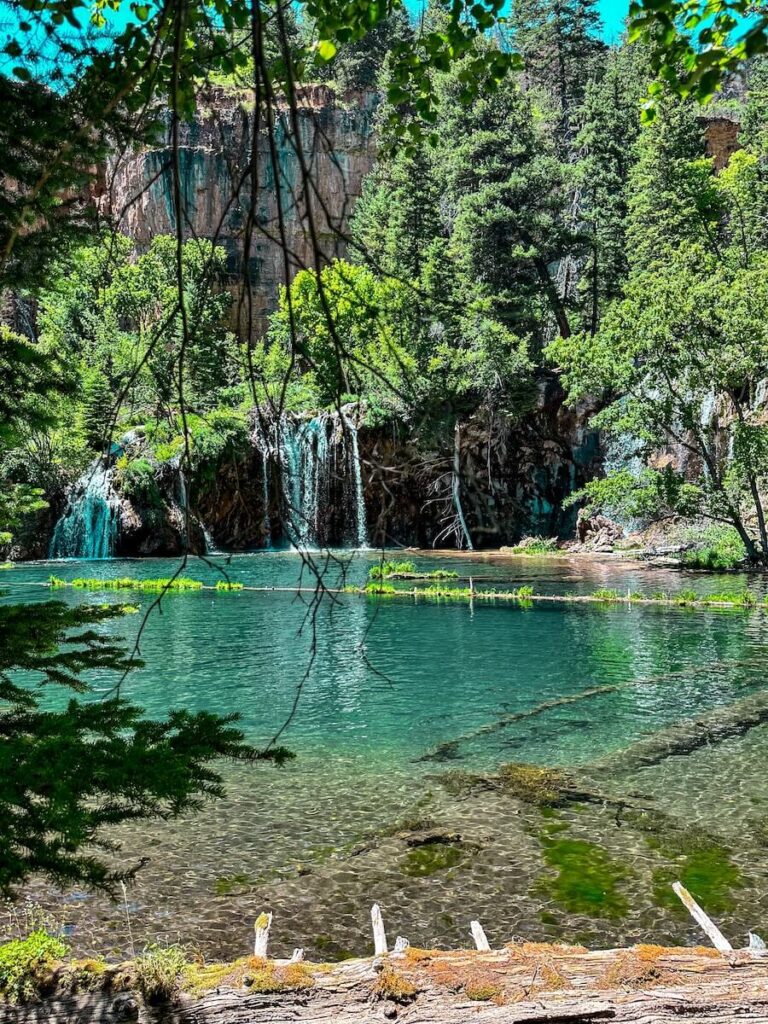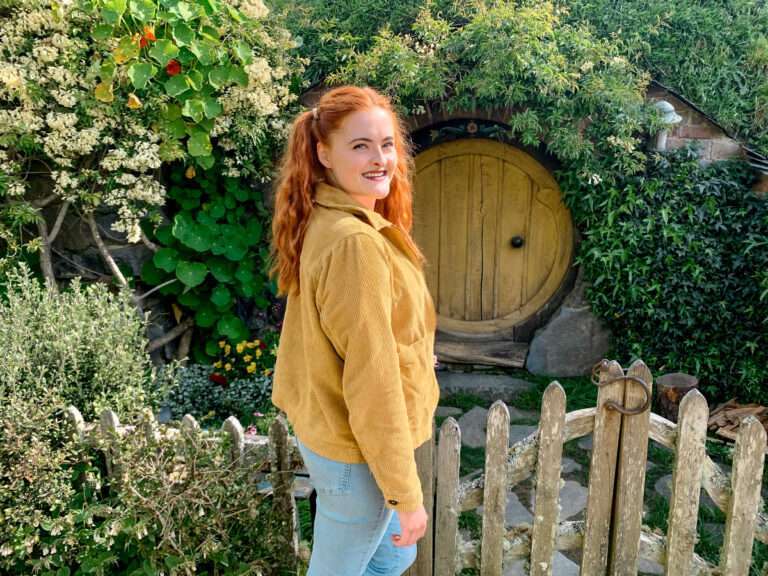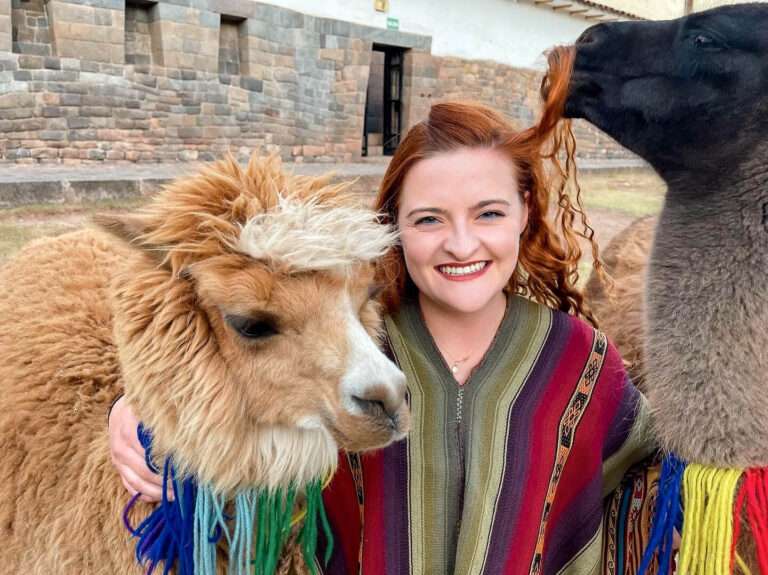Wandering Tokyo in a Kimono: A Cultural Adventure Guide (+ Photo Tips)
This website contains affiliate links from trusted partners. If you purchase through a link on this site, I may earn a commission at no extra cost to you. As an Amazon Associate, I earn from qualifying purchases. See my Privacy Policy and Disclosure for more information.
Tokyo is one of those cities that hits all five senses at once. It’s got neon lights humming overhead, the smell of sizzling street food drifting through the air, centuries-old temples tucked between skyscrapers, and millions of tiny moments happening all around you.
And with over 10 million visitors each year, it’s no surprise that everyone comes looking for a little magic.
For me, the magic happened the moment I slipped into a traditional kimono.
My best friend and I could’ve explored Tokyo “normally”… but if you know me at all, you know I don’t do normal. I do adventure. I do storytelling. I do “let’s turn this into a once-in-a-lifetime photo moment.”
So naturally, wandering Tokyo in kimono became one of my absolute favorite experiences.
Now… quick note: this isn’t for everyone. Some travelers prefer keeping a low profile, blending in, or exploring without the extra attention. Totally valid.
But if you’re someone who loves stepping out of your comfort zone, meeting new people, embracing the culture with respect, and capturing absolutely stunning, cinematic photos as you wander through Tokyo’s historic streets… then renting a kimono might just be the highlight of your trip.
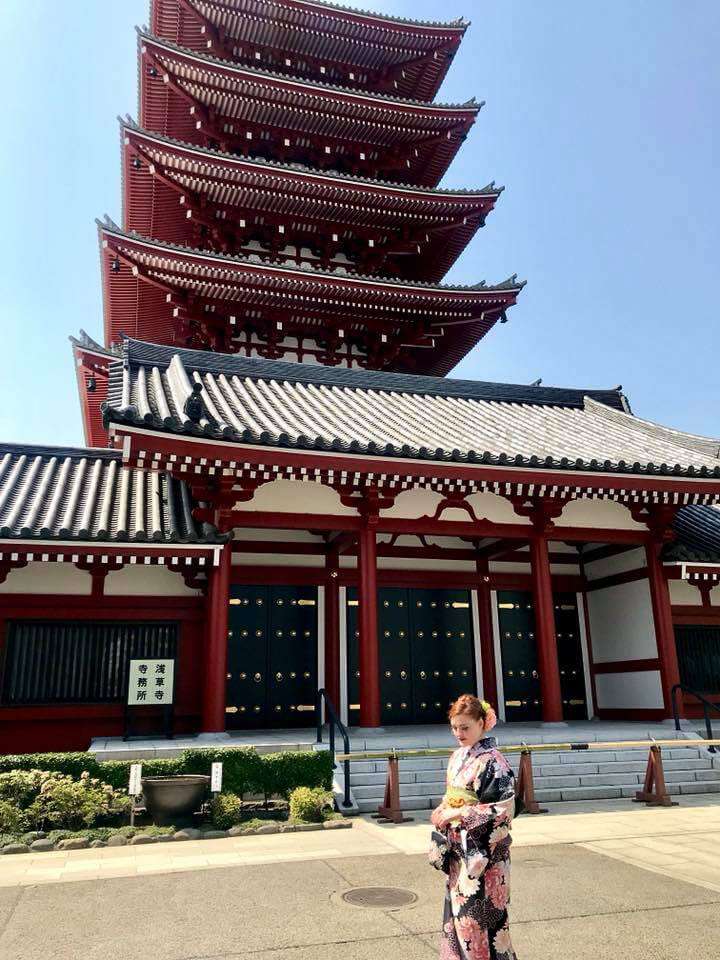
My Bucket List Review for a Kimono Rental
| Category | Culture |
| Who Needs to Add This to Their Bucket List? | Travelers who are want to explore Japan and respect its culture. |
| Best Time to Go | Anytime, but Spring if you want blooming cherry blossoms. |
| Traveling Difficulty | Easy |
| Physical Difficulty | Easy |
| Popularity Rating | 2/10 |
| Group/Tour Required | Go through a rental company, but then you are on your own. |
| Budget | $$ |
| Wheelchair Accessible | You might need to get out of the wheelchair to get dressed, but you should be fine after that. |
| Kimono Tour | Traditional Kimono Rental Experience in Asakusa |
| Favorite Place to Stay (Tokyo) | The Royal Park Hotel Iconic Tokyo Shiodome |
If you need more information about the categories of this table, please check out the Bucket List Reviews guide.
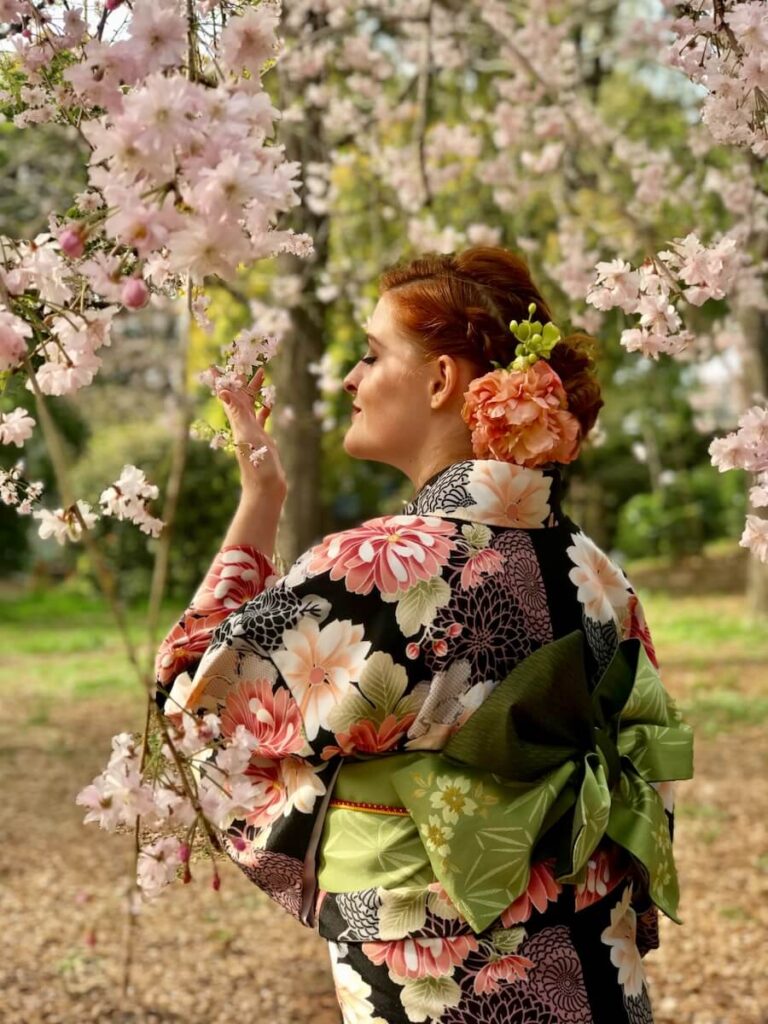
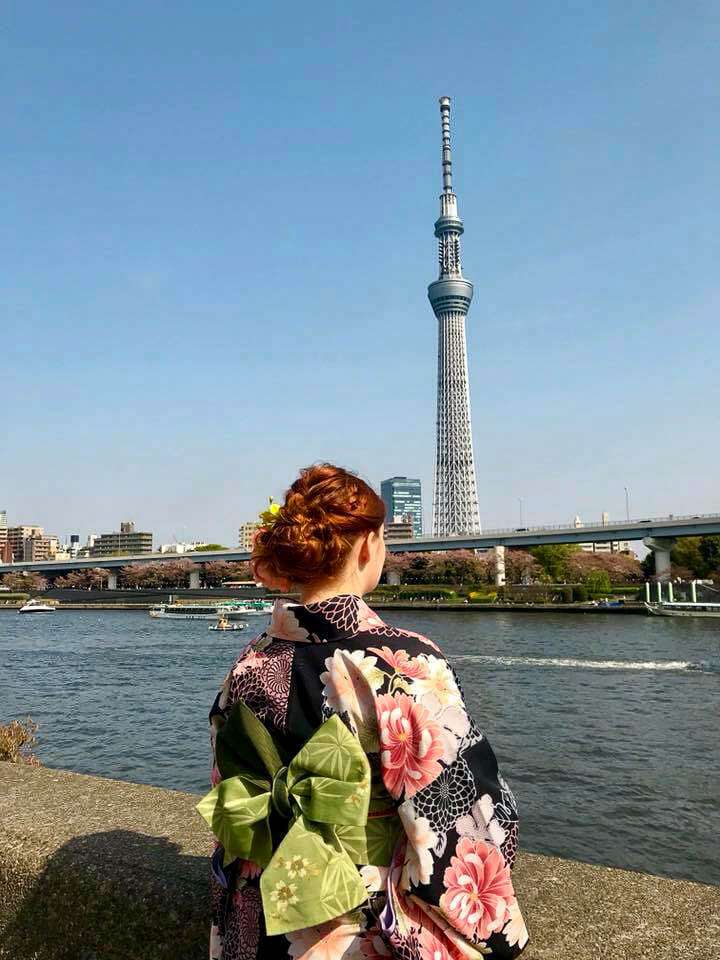
What is it Like to Wear a Kimono Around Tokyo?
It was very important for me to wear a kimono with respect to the culture as my number one priority.
When I wore that kimono, I told myself that I would be representing the Japanese culture and I would conduct my behavior in a way that would honor the kimono and Japanese people.
When I first went out in the kimono, I did notice that there was a lot of eyes on me. With that in mind, it is an activity that brings a lot of attention to the wearer.
As I mentioned before, I would recommend this activity to someone who doesn’t mind getting noticed—but it is not in a bad way! I am not going to sugarcoat it; people will probably stare at you.
However, I think (and hope!) that my original priority was being communicated to people because I didn’t have one single negative experience.
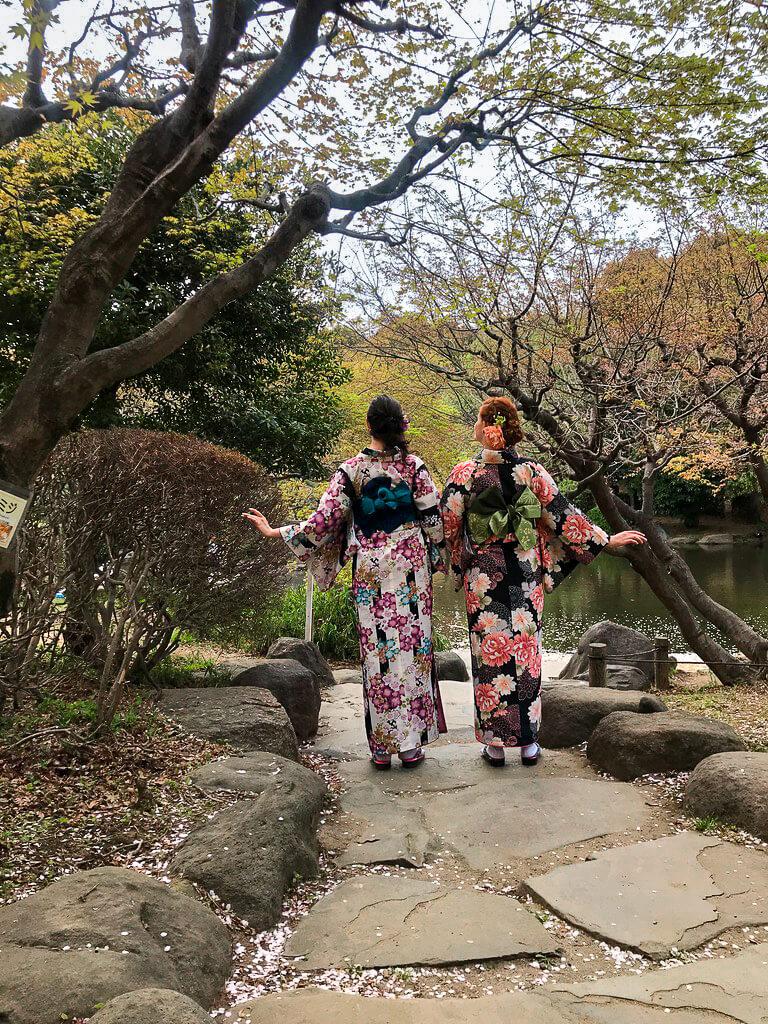
There were several people who asked for photos with me and I did get a lot of warm smiles and friendly nods as I walked down the street. I even had an elder Japanese lady approach me and thank me for appreciating her culture.
This might not be everyone’s experience, but to me, everyone seemed to appreciate my apparel.
And the pictures. Oh, the pictures! There is nothing that steps up the ‘travel photography’ or ‘Instagram travel’ game like being in a gorgeous city in gorgeous traditional clothing!
Adventure Photography Tips for Wandering Tokyo in a Kimono
Wearing a kimono in Tokyo isn’t just a cultural experience, it’s a walking, breathing photoshoot waiting to happen.
Between historic temples, glowing lanterns, quiet alleyways, and bustling city scenes, Tokyo gives you the perfect mix of tradition and chaos to create some truly cinematic images.
Here’s how to capture the moment like an adventure photographer:
Best Time of Day for Kimono Photo
Golden Hour (sunrise + sunset)
Soft, warm, flattering light that makes kimono patterns glow.
Perfect for temples, gardens, and atmospheric streets.
Blue Hour (dusk)
Tokyo lights start coming alive, especially great in Asakusa, Shinjuku, or near lantern-lit alleys.
Kimonos look dreamy under the cooler tones.
Midday (if unavoidable)
Use shaded temple walkways, torii gates, or alleyways to avoid harsh light.
Midday sun can also give you dramatic shadows. Embrace them!
Camera Settings for Movement vs. Stillness
Want crisp, elegant portraits? Here are some ideas for settings to start with. You might have to experiment.
- Shutter: 1/200–1/400
- Aperture: f/2.8–f/4 for blurred backgrounds
- ISO: 100–400 depending on light
- Focus mode: Eye/face detection (especially important if you’re shooting yourself)
Am I speaking a different language to you right now? Here is a refresher on the exposure triangle and shooting in manual.
Want movement?
Let the kimono sleeves flow and add motion blur:
- Shutter: 1/60–1/100
- Burst mode for smoother motion
- Stabilize camera against a wall or use tripod
Night shots?
- Aperture: f/1.8–f/2.8
- Suppress ISO noise with Topaz AI in editing
- Shutter: 1/125+ to keep kimono fabric crisp
How to Photograph Yourself in a Kimono (Solo Travel Style)
Solo adventurers: this is your time to shine.
- Bring a small travel tripod (or mini tabletop tripod for urban areas)
- Use your phone or camera timer (2s or 10s delay)
- Use the remote shutter on your phone or watch
- Switch to burst mode so you can walk, turn, or move naturally
- Stand near walls, pillars, lanterns, or gates so autofocus stays locked
📸 Bonus: Ask shop attendants or locals politely. People are incredibly kind when they see you in kimono.
Important! Be sooooo careful when setting up your gear on a tripod and walking away in crowded areas. Nobody wants to see you sprinting after a thief in a full kimono (okay, maybe I wanna see it).
Posing & Movement Tips for Kimono Photography
Kimonos are structured, layered, and elegant, so your posing style should match.
- Small, soft steps (kimonos restrict stride, and it looks graceful in photos)
- Hold the sleeve gently to show fabric movement
- Turn your body slightly sideways to show the obi (the wide belt)
- Use the wind if you get lucky
- Look back over your shoulder. This works beautifully with intricate obi designs
- Walk slowly for those candid “wandering Tokyo” shots
- Play with layers: subtle sleeve lifts, small rotations, or soft arm movements
📸 Pro tip: Kimono shots look best when you avoid big, dramatic poses. Think elegant, soft, traditional movement, not Instagram-model lunges.
Editing Tips: Making Your Kimono Photos Pop
Bring out the vibe:
- Slightly boost vibrance to highlight kimono colors
- Add texture and clarity sparingly (only on fabric)
- Warm the highlights for sunrise/sunset shots
- Cool the shadows for blue hour and night shots
- Use radial filters to spotlight yourself
- Desaturate competing backgrounds (like neon signs) to keep focus on the kimono
- Remove tourists with cloning/healing if needed
Confused? I have a full editing ebook that I’ve created to help if you are lost ☺️
Where To Wear A Kimono in Tokyo for Your Photos & Bucket List
1. Sensoji Temple
Since the company I rented the kimono from was in Asakusa, this was the first place that we stopped and I was not disappointed in the slightest!
Asakusa is one of the oldest neighborhoods in Japan and it shows. I enjoyed this area because I got to see some typical Japanese style temples and customs. This was a perfect environment for showcasing my beautiful kimono.
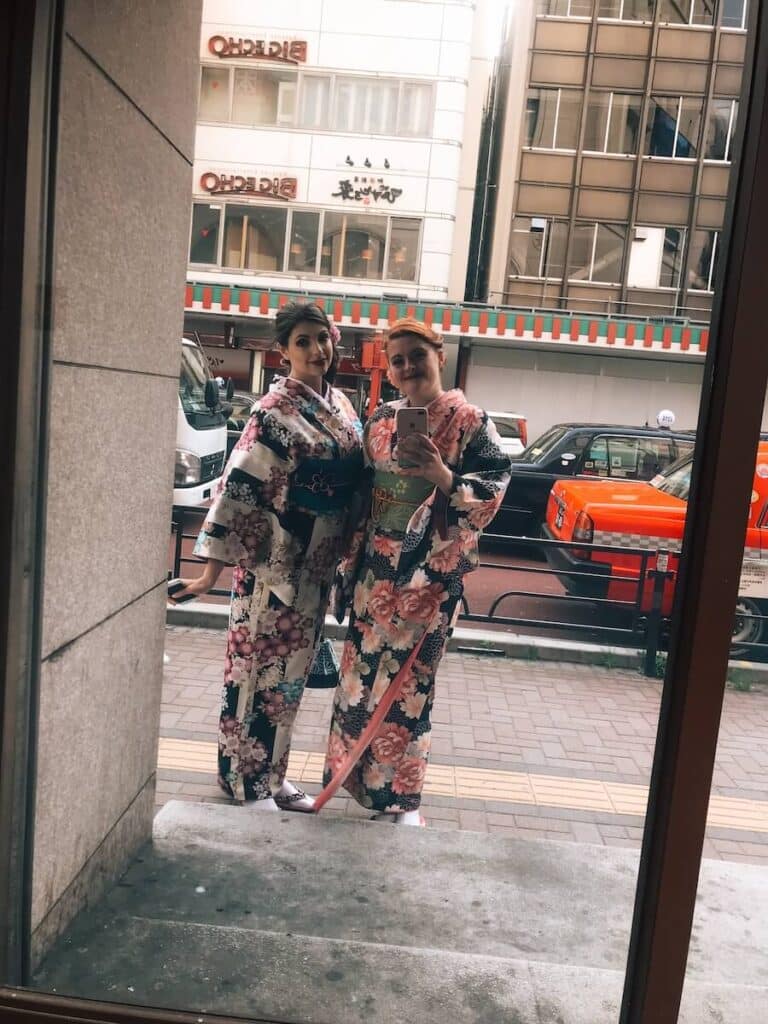
2. Shibuya Crossing
This place is buzzing! And that is an understatement! In fact, this is the world’s busiest pedestrian crossing and has a million people visiting it daily!
If you are going to opt in for a kimono rental, this would be an epic place to wander around!
3. Nakameguro River
I would recommend this one if you are there during cherry blossom season!
I am a sucker for cherry blossoms so I am a bit biased. Also, I would go here if you want to get more of the “nature” scenes in your kimono and get away from the busy city feels.
For a kimono rental in Japan, you can’t ask for much more in regard to beautiful atmospheres.
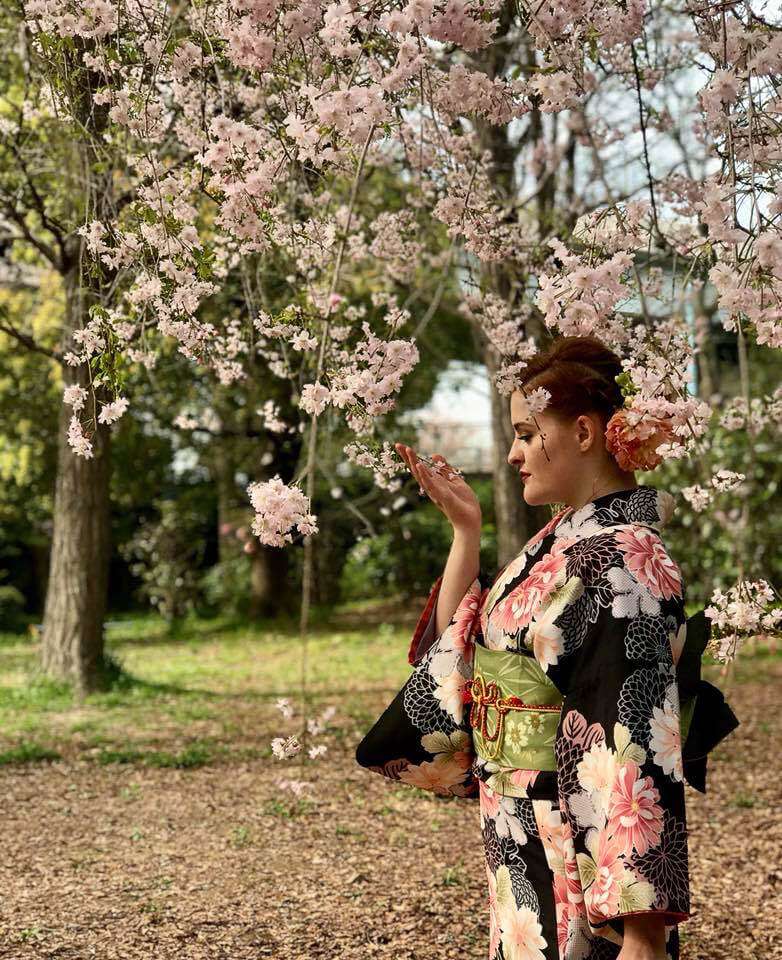
4. Harajuku
It is hard to describe Harajuku, but I think I (and anyone else who has been there) can clearly say that it is an experience to go there.
Whenever you think of the “cuteness” that surrounds a lot of Japanese merchandise, it is very condensed in Harajuku!
This makes it a perfect place to go wandering in a kimono. There is a lot of colorful street art, quirky shops, and cosplay.
If you do make it over to this side of the city, I have heard that Tokyo Plaza Omotesando is pretty cool with its geometric mirrors and amazing street photography!
5. Hamarikyu Gardens
Although I have not been there myself since I ran out of time, the pictures of this place are out of this world. Plus, I have read that this garden is amazing throughout the seasons!
Even if you cannot make it to this one, I would recommend finding some sort of garden because there is nothing quite as magical as meandering through a Japanese garden in a traditional kimono!
I believe the one that we went to was the Shinjuku Gyoen National Garden.
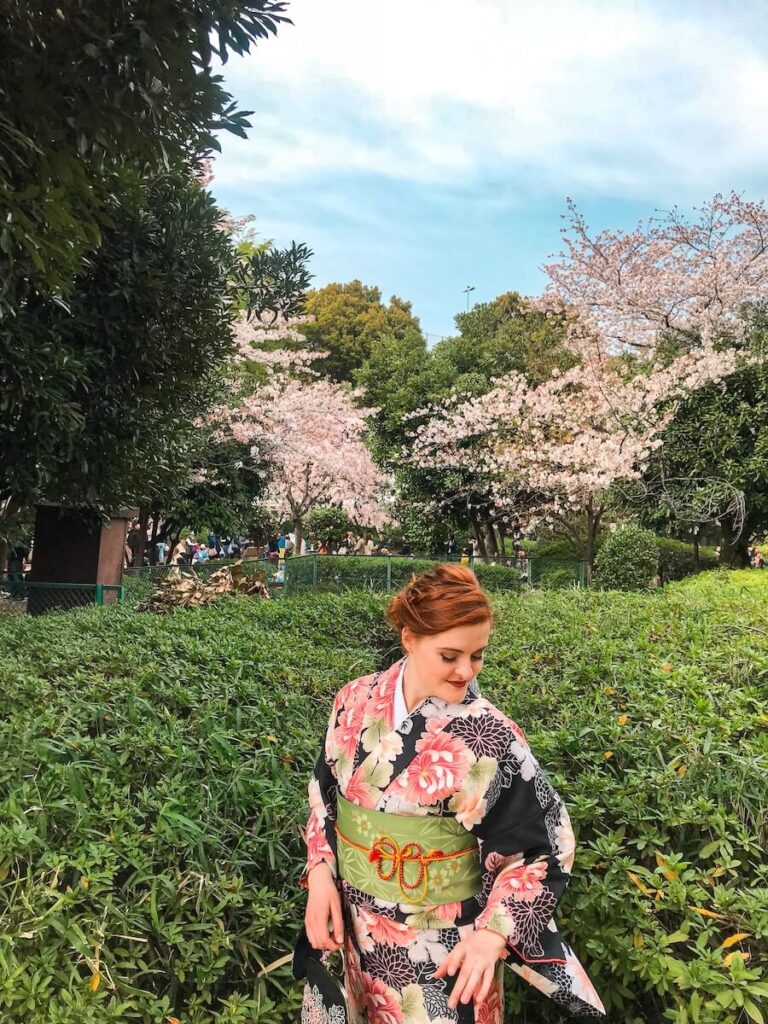
6. Go somewhere with a sky deck to get a full view of the city!
If you are looking for a view of the city, the Roppongi Hills City View is hard to beat! You even get a nice view of the Tokyo Tower! Although I personally did not see it, I also hear that you can see Mt. Fuji on a clear day!
If you are looking for other options, I have heard amazing things about Tokyo Skytree or Shibuya SKY, which both offer a 360-degree viewpoint.
Roppogoni vs Shibuya vs Tokyo Skytree
Keep in mind that Roppongi and Shibuya are about the same height (230-250m/750-820ft respectively) and the Tokyo Skytree is substantially taller (634m/2080ft).
I would pick one based on if you want to feel “on top of the world” or you actually want to see the popular landmarks.
7. Omide Yokocho
If you are out for the night (depending on your rental agreement and the company), omoide yokocho is an awesome place for food, drink, and its iconic hidden alleyways that photographers flock to for those interesting shots!
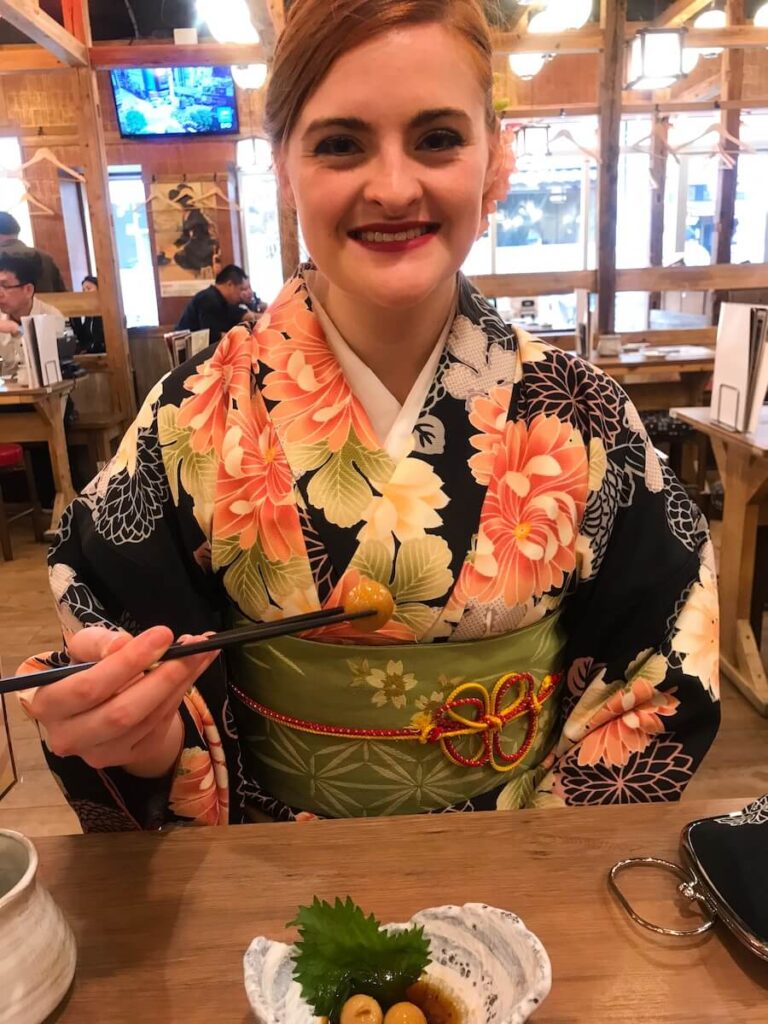
Shot Ideas for Wandering Tokyo in a Kimono
If you want your kimono adventure to feel like a cinematic Tokyo moment, here are some easy, beautiful shot ideas that work every single time.
Mix and match these to tell the full story of your day.
The key here is to have fun with photography while also respecting the local culture. I would discourage any inappropriate or offensive gestures while wearing a kimono.
It is an extreme honor to wear this beautiful clothing, and our our pictures need to reflect that while paying out respect.
1. Close-Up Fabric Textures
The embroidery, patterns, weaves, and colors of a kimono are stunning.
Grab detail shots of:
- sleeve fabric
- floral designs
- silk shine
- obi knot texture
These make gorgeous storytelling fillers between big scenic shots.
2. Obi (Belt) Detail Shots
The obi is often the most ornate part of the outfit.
Photograph:
- the back bow
- side details
- the way light hits the folds
Perfect for vertical or square compositions.
3. Walking Shots with Tokyo Backdrops
Soft, small steps are elegant and natural in a kimono.
Shoot:
- walking away from the camera (showing obi)
- mid-turn walk
- walking toward lanterns, torii gates, or temple paths
These shots scream “Tokyo wanderer energy.”
4. Temples + Shrines + Gardens
Classic and breathtaking. Great places include:
- Senso-ji in Asakusa
- Ueno Park
- Hamarikyu Gardens
- Meiji Shrine
- Any quiet alley with hanging lanterns
Pair the timeless kimono with Tokyo’s historic beauty. Again, be very respectful in all of these places.
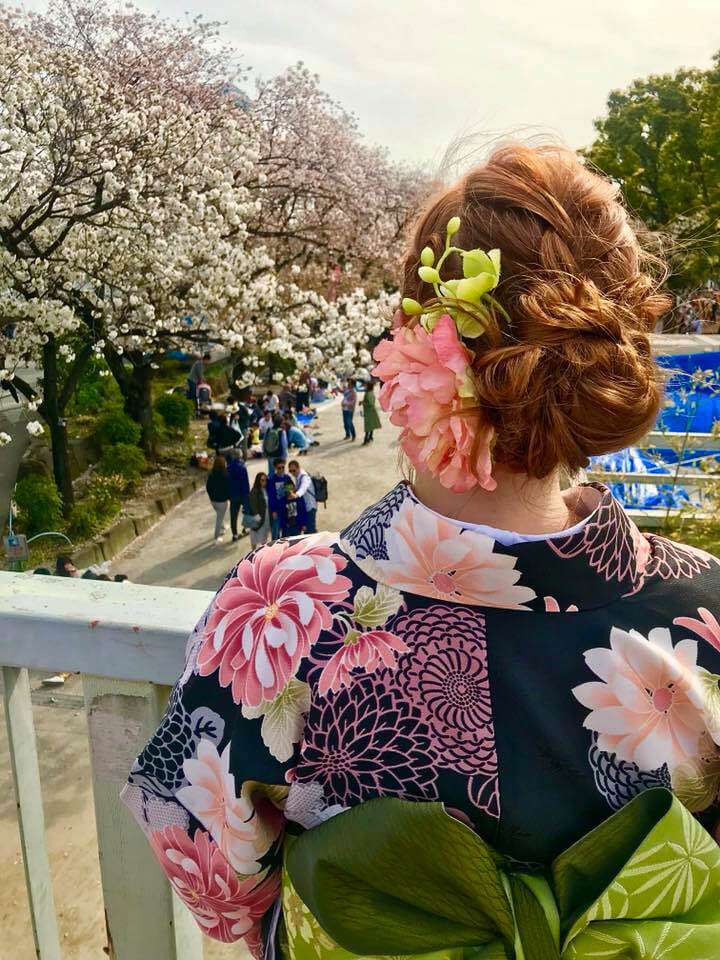
5. Lantern-Lit Alleyways
Lanterns + kimono = instant Japanese cinematic vibe.
Go right after sunset for the perfect balance of soft sky + glowing lights.
6. Candid Storytelling Moments
Some of the best photos aren’t posed at all. Capture:
- adjusting your obi
- fixing your hairpin
- looking at a map
- buying a snack from a vendor
- chatting with your travel buddy
- admiring a temple gate
These show the experience, not just the outfit.
7. Mirror or Shop Window Reflections
Reflections look magical in kimono – especially in traditional shops or quiet side streets.
8. Seasonal Sakura or Autumn Leaves (If You Go in the Right Season)
- Cherry blossoms for softness
- Red maple leaves for drama
- Both pair beautifully with kimono colors and textures
9. The Final “Hero Shot”
A full-body portrait in your favorite spot with lanterns, gates, gardens, or a quiet alley.
This is the one you’ll frame or print.
Tips for a kimono Rental
I would consider wearing Geta and tabi (the shoes and socks that are traditionally worn with the kimono).
They can take a little getting used to, but they are surprisingly comfortable.
I walked in them all day without any pain. I would definitely get the right size and walk a few steps before venturing out just to make sure that they are comfortable!
When you pick your design, I would ask one of the staff members what it means. Most likely, the contents of the design have symbolism or meaning.
Just because you don’t know what it means doesn’t mean someone on the street won’t—so I would make sure you know and are okay with what you are wearing!
With that being said, make sure that you are wearing the kimono appropriately and according to traditional practices.
This was important for me when I rented a kimono. This is why I went through through a rental company instead of doing it myself so that I could get dressed by people whose traditions I was representing.
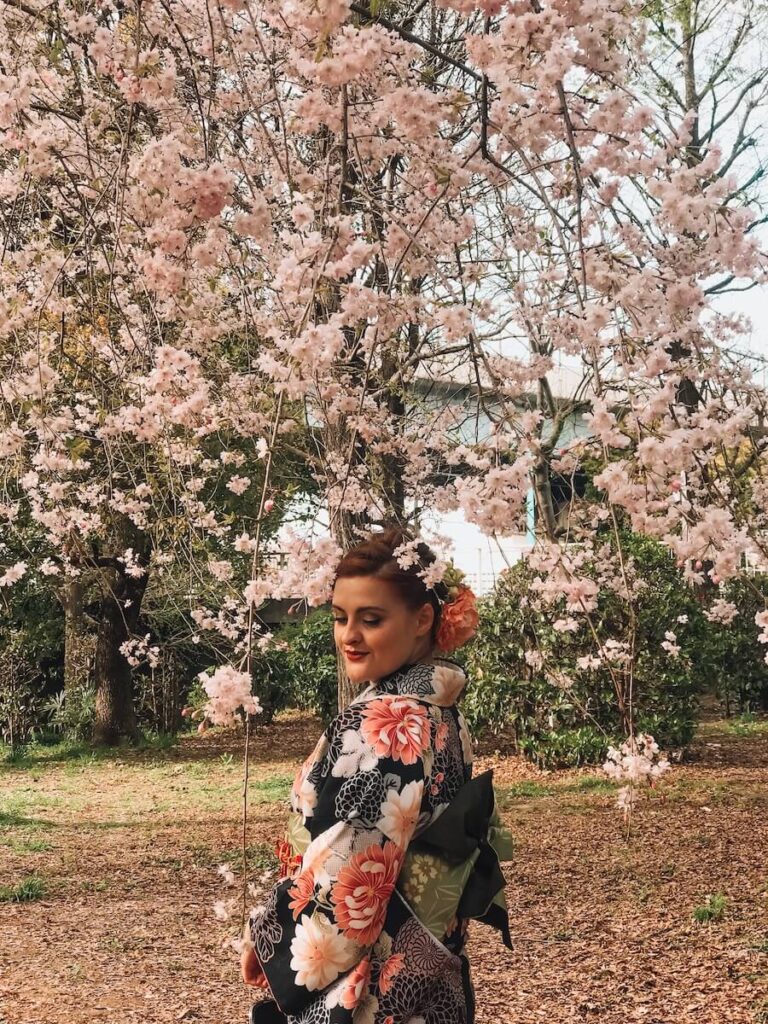
Yae Kimono Rental Review
I know that there are several companies around Tokyo that provide this kind of service. I decided to go with Yae Kimono Rental Asakusa because of the photos and reviews from the past clients.
I also liked them because they approached it as an entire experience (the kimono, hair, accessories) the whole shabang.
Although I love doing hair, but I wanted it done in a traditional way done by professionals. They were extremely nice, had a wide selection of kimonos, and everything went off without a hitch.
The kimono was of amazing quality and my hair was an absolute masterpiece. Also, I knew that there was some do’s and don’ts when it came to wearing a kimono.
For example, I learned that the left side is on top and not wearing a sash ribbon in the front. This is why I found it better to get advice from an expert to avoid insulting anyone. This company definitely went above and beyond! Overall, I would highly recommend them!
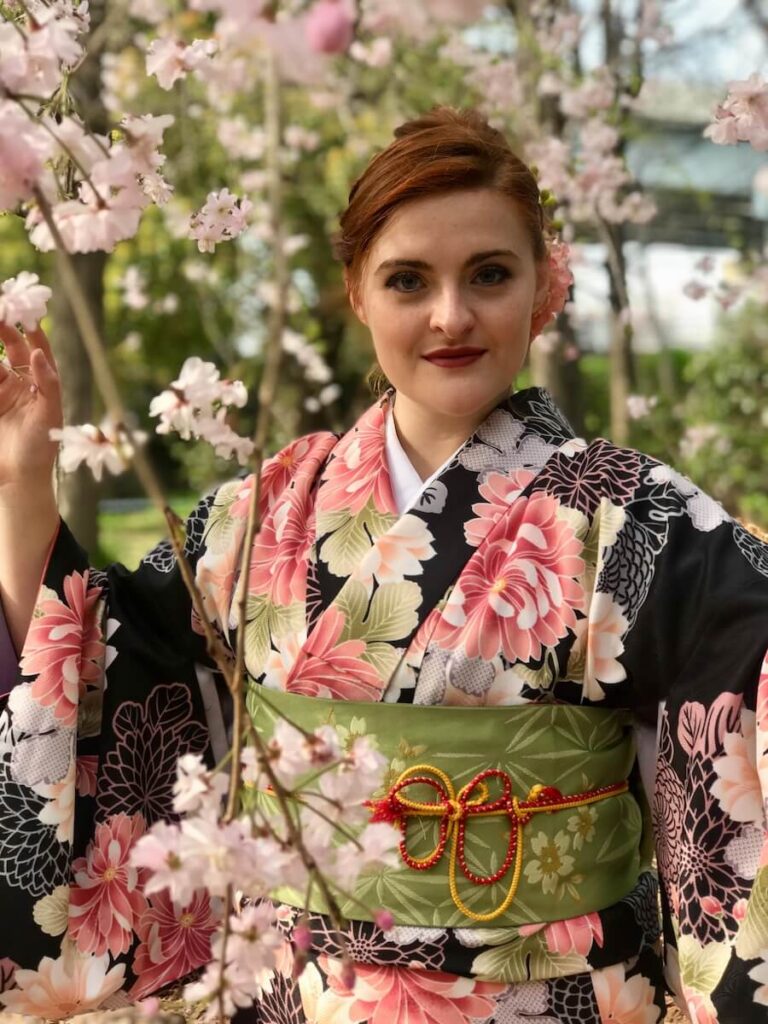
Kimono Rental Ideas Around Japan
Quick Fun Facts about Kimonos
Kimono means “thing to wear” and it is the national dress of Japan. This is a 1,000 year old tradition!
The shoes that you are traditionally meant to wear is called Geta and the split socks are called Tabi. These are surprisingly comfortable and help the kimono from getting dirty.
Male kimonos are usually a more subdued color, while a woman kimono can depend on what stage they are in life.
For example, when women are young and single, they would wear kimonos with long, flowing sleeves and vibrant designs. Where married women would have shorter sleeves, toned down colors, and maybe a family crest.
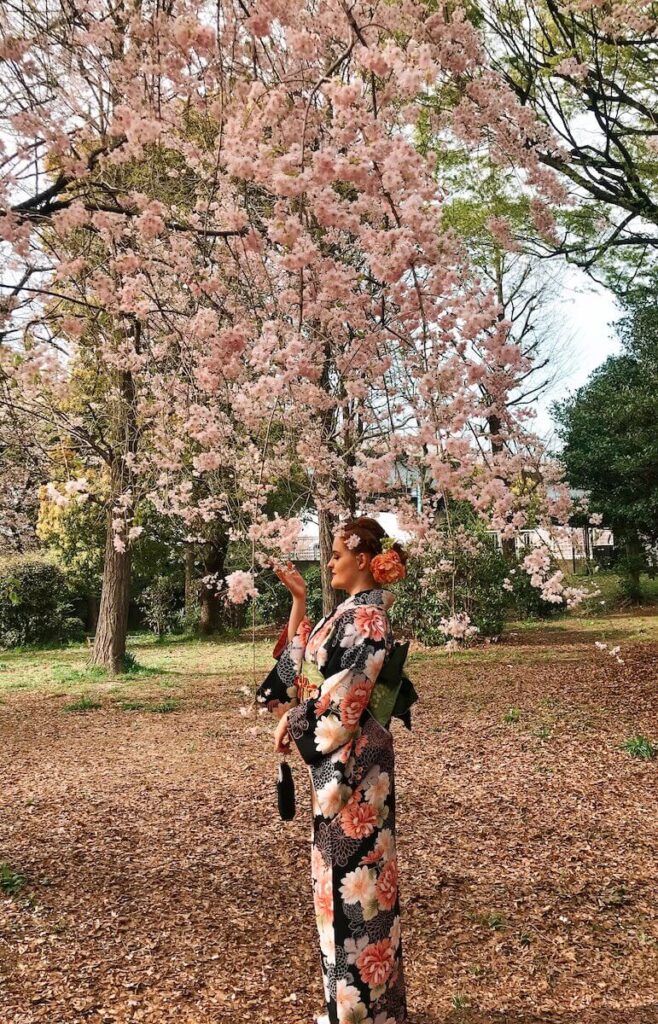
There are different meanings for kimono colors and patterns. These are mostly related to seasons, but there are other countless motifs and symbolic meanings on the kimono.
For example, cranes often represent longevity. This is something that I would take into consideration when picking your kimono!
There is also a summer style kimono called a yukata. This is more casual and worn to summer festivals or bathhouses.
Traditionally, when a kimono was washed, the stitches were taken out and then sewn back in again for wearing! This was known as arai hari. Now that is dedication!
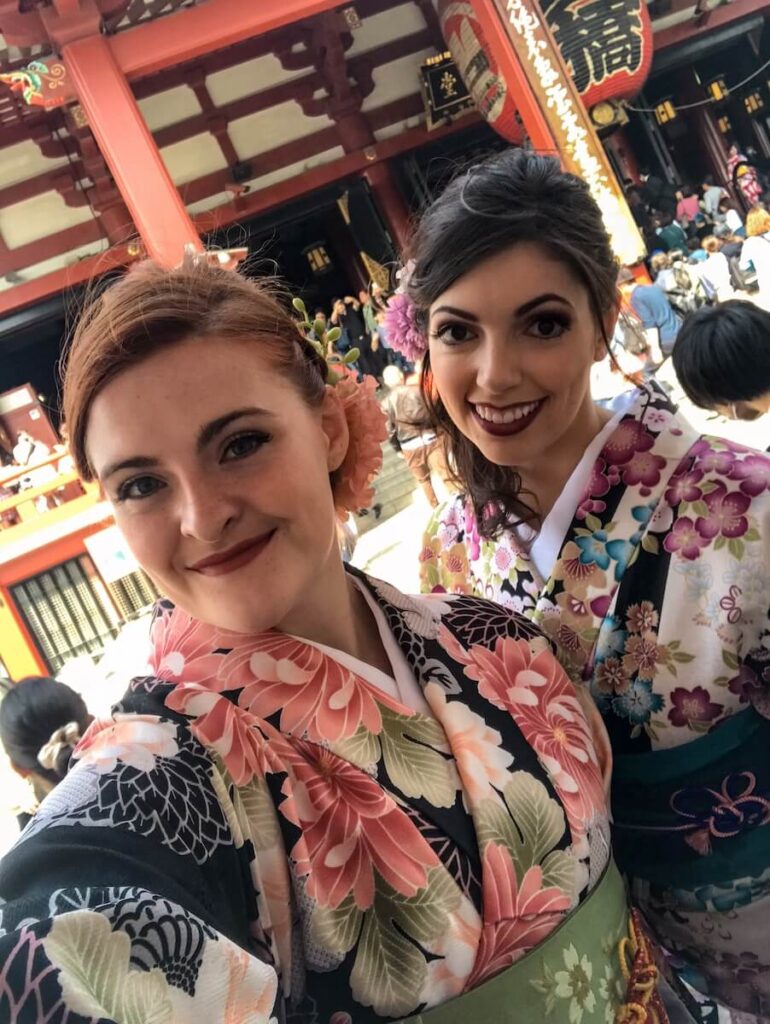
Plan Your Trip to Tokyo for a Kimono Rental
Find a place to stay
Find the perfect place to stay in Tokyo.
Book Activities
Book kimono rental services all over Japan.
Rent a car
Rent a car to go at your own pace or explore Japan.
Stay Safe with Insurance
Always stay safe when traveling!
Pro Tip: One of my other favorite things that I did while in Tokyo was staying at a capsule hotel!
Final Thoughts of Renting a Kimono in Tokyo
Wandering Tokyo in a kimono is one of those rare experiences that feels both timeless and electric. It’s like you’re stepping into a story that’s been unfolding for centuries and somehow becoming part of it.
Between the historic temples, lantern-lit alleyways, soft garden pathways, and the rush of a city that never stops moving, the day becomes more than just a fun outfit change. It becomes a reflection of why we travel in the first place.
You get to slow down. You get to notice the details. And if you’re a photographer at heart, you get to capture Tokyo in a way that feels deeply personal and unexpectedly magical.
Whether you choose a bold floral kimono, a soft pastel pattern, or something completely out of your comfort zone, the experience is pure adventure.
And the best part? You don’t have to be an expert to enjoy it. You just have to show up with curiosity, respect, and a willingness to embrace the moment.
So if you’re dreaming of a Tokyo memory that’s unique, photogenic, and wonderfully immersive… rent the kimono.
Who knows — your favorite photo from the entire trip might be the one where you stepped a little outside your comfort zone and into something beautiful. 📸💗
More for Your Asia Bucket List
Japan Bucket List
Flower Bath in Bali (All You Need to Know) + Photo Tips
Indonesia Bucket List
Bucket List Adventure Ideas in the Komodo Islands
Who would you wear a kimono with in Japan? Make sure to share it with them below!

